Not Fighting the World: Handling Injustices as a Bipolar Person
I wanted to talk today about a topic that’s been concerning me a lot lately, which is how to handle injustices with bipolar disorder. By injustices, I simply mean when someone is doing something that is genuinely wrong, especially when those injustices affect us personally. This could include anything from someone spreading a harmful rumor to someone actively discriminating against me because of my bipolar disorder (or any other reason). Like everyone else, we often have people do unjust things to us.
The Problem of Injustice In General

Source: Wikipedia – CC BY-SA 3.0
Injustice puts everyone in a difficult dilemma, whether one is bipolar or not. On the one hand, if we do nothing about an injustice, we risk being “walked all over.” Worse than this, in some cases, is that being passive to injustice can actually cause psychological harm in its own right. In my experience, accepting contempt often leads to the internalization of that contempt, which damages our sense of self.
On the other hand, fighting an injustice allows the person doing the injustice even more control over our lives. Fighting an injustice is usually hard work and emotionally taxing. We are emotionally invested in the outcome, and we’ll often find ourselves fighting alone.
So, injustice puts us in a difficult dilemma. On the one hand, if we accept it, it can do psychological harm and create bad patterns in relationships. On the other hand, if we do not accept it, we give the injustice even more control over our lives.
Injustice With Bipolar Disorder
The difficulty with injustices when bipolar is, as far as I can tell, three-fold:
- We can be especially sensitive to injustices when irritable, which is quite common in hypomanic states.
- We can be especially driven. Sometimes this is called “goal-oriented activity.” With respect to injustices, it can turn into crusades to correct the situation, whatever the costs.
- We can become either grandiose or even delusional about our capacity to correct the problem. The stress from injustices themselves can trigger an episode that makes this reaction more likely.
All of this makes injustice especially difficult with bipolar disorder. Sometimes, it can be hard to tell if something is truly an injustice in the first place. When irritability comes with bipolar disorder, often everything feels like a slight. On the other hand, we can’t simply write everything off as an episode, or else we risk being walked all over.
The way that we deal with injustice, however, can cause lasting harm to relationships. Sometimes we’re dealing with what the authors of Bullies, Tyrants, and Impossible People call “simply difficult” people, but most of the time, we are dealing with people that are simply muddling their way through their own lives. Relationships are not usually reducible to a single injustice or type of injustice, but when hypomanic, it can seem that way, leading to putting out fires with gasoline.
Strategies for Dealing with Injustices
What then are some strategies for bipolar people to deal with injustices that don’t involve either becoming a victim or allowing hypomania to cut a swath through our relationships? There are a few things that I’ve discovered that are helpful in navigating my way through the situation without causing too much harm.
Being Aware of Our Own Emotions
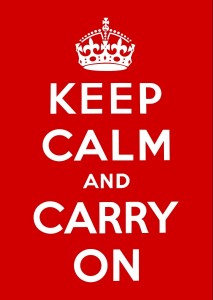
Public Domain
Before I deal with any injustice, I find it is important, or rather absolutely necessary, to get my emotions in control first. I have a mood disorder, and don’t have the luxury of acting on my emotions or being “a little angry.” When I find myself become especially grandiose or angry, this sometimes means that I will simply need to grit my teeth and bear something until my current hypomanic phase wears off. I’m not necessarily giving up, just postponing in these cases until I have the emotional stability to handle the situation.
Being Aware of the Relationship
There are two useful questions when an injustice occurs in a relationship (I mean the term broadly here; we have a “relationship” with our landlord, for example). First, is this the kind of relationship where I have lines of interpersonal communication open? Not everyone is a bully. A lot of the time, people are just thoughtless or behaving in ways that they will rectify if it is pointed out to them politely and clearly. If I have a good relationship with someone, I can often solve things by (calmly) discussing it.
However, we’re often dealing with “bullies or impossible people.” For these people, I’ll simply present the suggestions of Shapiro et al., because I find they really work, so there’s no need to reinvent the wheel here:
- Situationally Difficult: These people are simply overreacting to a specific situation or to a certain type of situation. With a close relationship, I can use the method discussed above. With a less close relationship, being calmly empathetic can de-escalate the situation swiftly.
- Strategically Difficult: As far as I can tell, most people who are difficult are in this camp. When confronted about an injustice, they will use what can only be called “tactics” of aggression, avoidance or guilt to get out of the situation. These people can often be overcome by pointing out how the dynamics of the situation are not working, but in a non-accusatory way. They really need to be called on their game, in an indirect way.
- Simply Difficult: Ah, the simply difficult. These are the highly functioning sociopaths who manage to get in positions of power so they can push people around and abuse them. Fortunately, such people are rare. These people need to be simply fought or avoided, and the goal here is to realistically assess one’s chances of stopping that person and pick battles.
Finding an Advocate

Source: bikephotomusic – CC BY 2.0
One of the most powerful tools I have found for dealing with a situation is to find someone whose job it is to handle such situations. If there’s a problem at work, there may be the union. If there is a problem with a company, there is the Better Business Bureau. If there is a problem with a landlord, there is the Landlord-Tenant Bureau (to whom I report every single potential landlord who discriminates against us for having children, which is illegal in Ontario). If there are political injustices, I can donate to a candidate who will advocate for a cause. For just about everything else, there are lawyers.
However it might seem, the world is not actually designed to squish us into little bits of paste. There are institutions out there and ways of appropriately advocating against injustice. The best part about these advocates for me is that it allows me to feel as though I’ve referred the problem to a person whose job it is to handle the situation, and I can de-invest myself in the situation emotionally by “letting them handle it.” That way, the unjust individual or institution is neither walking all over me nor taking over my life.
Avoiding Investment
I know I have a mood disorder, and I know the ways that dealing with injustices can be especially difficult for me. We need to take care of ourselves in situations so that injustices don’t cause the secondary harms that come from hypomanic episodes. However, this doesn’t mean that we need to let people walk all over us. Through insight into what is occurring with ourselves emotionally, finding working strategies that can overcome a problem and referring injustices to the appropriate professionals, it is possible to deal with injustices without them taking over our lives.

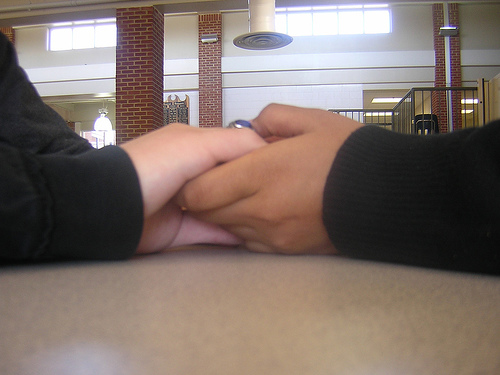

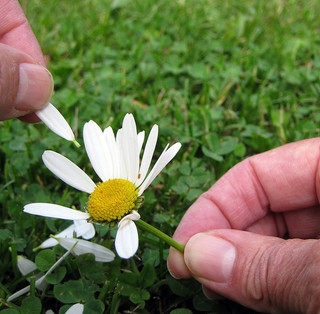

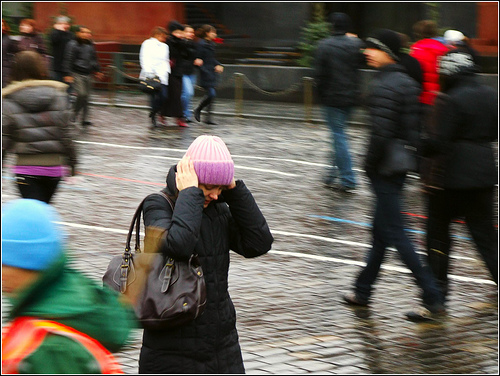
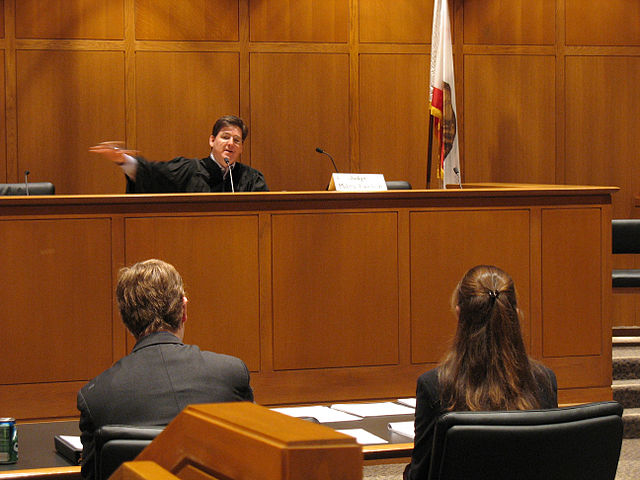


When I read the title of your article I stopped dead in my tracks. You are writing about me. A large part of my personality is described in your article. I’m an advocate for this and that. I use the small claims court and write letters to politicians and to the “Editor,” for example. I have mixed feelings about the information–I’m not a super hero afterall. But, I sooo appreciate the advice on how to deal with “unjust situations.” Thank you.
You’re welcome, Vicci. I’m glad to hear I’m not the only one :).
I lost my job because of this and the people I thought I could trust were the ones who took advantage of my bipolarism to get me out of there. They simply did not want the headache of dealing with me. It was a fight to keep myself in check but I was starting to get a better handle on it. When I went on a stress leave, they used this to find reason to get rid of me. My head was not at the right place at the time and I simply said “if they want me gone, pay me out”. I worked with these people for 6 years and I would have never expected them to stab me in the back. This was 2 1/2 years ago, but it feels like yesterday.
I find that, too, Carrie. I’m not sure if it has something to do with bipolar disorder, but I’ll sometimes be upset about things that happened over a decade ago in some cases. Someone recommended that I write about forgiveness on my article about acceptance, and I’m realizing now that it’s something that would really be worth doing.
Great articles you certainly articulate what we all feel. I regularly go into battle boots and all on injustice when Im stable or manic without really thinking. Many times I get a win / loose result which is undesirable for either person. Sometimes I moved into a depressed mood part way through the fight and loose the desire to achieve an outcome an so give in. I am in business for myself and the hardest part is emotional stability and forming relationships with customers. I fear we will have a disagreement at some time and depending on my status at the time I may not be able to reach a desirable outcome for either of us.
That’s a good point, Darren. It’s quite common to give up on hypomanic fights half way through when the energy wears off. I hadn’t really thought of that.
Superb article Daniel. I am in the middle of a grievance procedure at work. A close friend who knows my BP background became my boss’s boss this year. And to my horror, when I disagreed with how my boss did my annual review 5 months ago, she went to him. And between them, they ignored the rules and turned it into a health issue so they refer me for medical assessment.
I tried for a few months to get it out of my mind but pain like that is overwhelming. So I invoked the formal grievance this week and have had to ready myself for a battle. I agree with most of the strategies you wrote in the article. And I am prone to feeling injustices regularly. And acting like I have a victim complex maybe at times.
BUT, with the full support of my wife and independent HR advice, it looks like my BP was used against me in a sneaky way to avoid proper and fair HR procedures. So I cannot supress that, and am prepared to stand my ground. Its not easy, but in a weird way, I have more inner peace since I made it a formal matter than an outside adjudicator may have to decide on.
Keep up the great work with the website 🙂
I’m really glad to hear that. I’ve definitely found that handing off problems to someone else is a huge relief. I only wish I’d figured it out sooner.